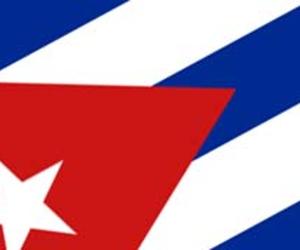OFAC Revisits Cuba Licenses for Some Organizations
- Submitted by: lena campos
- Politics and Government
- 10 / 09 / 2012

People-to-people" Cuba trips are not dead -- but they're not healthy yet, either.
Whether through a miracle of sudden organizational efficiency or intense public pressure, the U.S. Treasury's Office of Foreign Assets Control (OFAC) in the past week began renewing licenses of organizations offering "people-to-people" Cuba trips.
Many of the providers had waited months for renewal without a single word from OFAC except for requests for more documentation.
Last Friday, the big Cuba tour provider Insight Cuba suddenly received its renewal license good through the end of 2013, while Friendly Planet Travel got a two-year renewal good through 2014 and the Fund for Reconciliation and Development got a new license. Geo-Ex got a license Sept. 7. Grand Circle Foundation, Tauck and a couple other small groups also have received renewals.
Yet as of today, other well-respected groups remain in limbo, including Smithsonian Journeys, National Geographic Expeditions, National Trust for Historic Preservation, the Metropolitan Museum of Art and Austin-Lehman. None can offer the popular trips until their renewal licenses come through.
"We are hopeful. We are still waiting. Obviously, we will never know until we know," Justin Brown, project director for National Geographic Expeditions, said this morning. "But we are optimistic. We have been hearing reports of other organizations getting their licenses. And we hope we are next on the list."
The problems stem from the fact that no American company or group can sponsor a tour to Cuba without a license from the U.S. government.
A 50-year-old American trade embargo against Cuba prohibits Americans from spending any money in Cuba, including while traveling. Until last year, the only citizens allowed to visit legally were those with family in Cuba or those on academic or religious trips.
In 2011, President Obama approved another exception, called "people-to-people" travel.
The Free Press reported from Cuba on the very first such trip in August 2011.
Between summer 2011 and June 2012, thousands of regular Americans went on "people-to-people" trips to Cuba; most of them traveling there for the first time.
Then came a roadblock. In May, anti-Cuba legislators in Congress, suspicious that some trips were vacations in disguise, forced renewal applications to become so long and complex that nobody could get a renewal.
Many companies' licenses lapsed. Tours were canceled. Staffers were laid off.
A Detroit Free Press story exposed the crisis in the "people-to-people" program in late August.
Now after weeks of media attention, OFAC's license spigot is flowing again, if not at full strength.
Still, "I am feeling much more hopeful in the last few days. I was getting a little bit despondent about the scenario," said Christopher Baker, an expert on Cuba tourism, whose company MotoDiscovery, has a "people-to-people" license for motorcycle trips to Cuba.
Unlike many Caribbean vacations, Cuba trips are guided and planned, with activities for every minute. They focus on cultural interactions, music, art, nature and meeting local people, not on beach-going or partying.
They also are not cheap. Most of the all-inclusive trips cost about $3,000 to $4,000 for a week, attracting sophisticated travelers who are curious about life in a nation so long banned to Americans.
Source: Hispanicbusiness.com
Comments